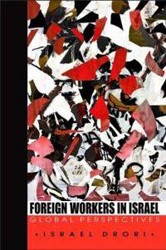Rich Cohen knows how to tell a story. His ambitious new book, subtitled “An Obsessive Quest to Understand the Jewish Nation and its History,” carries the reader along with crisp sentences and evocative descriptions, infusing history with suspense and drama. He has a novelist’s eye for the telling detail, and a raconteur’s gift for the illuminating analogy. And he’s not afraid to say what he thinks.
Cohen begins the tale not with God’s Biblical promise to Abraham, nor with the unified kingdom under David and Solomon, but with the Romans’ destruction of the Second Temple. (“If you are a Jew in modern America,” he observes, “you are probably less of a Judean than a Roman.”) He sees the pivotal transformation of Judaism as a rejection of sacrifices and Biblical law, a change from “the stony and physical to the lofty and abstract.” His hero is Yohanan ben Zakkai, who he believes created a new order that freed Jews “from the hohum life of nations” by taking Jewish practice beyond Jerusalem and centering it on learning.
Cohen skips the subsequent evolution of Jewish thought through the Talmud, Maimonides, and their successors, and instead looks at mystics and false messiahs. He introduces colorful figures like Jacob Frank and David Alroy before turning to medieval ghettos and the future charted by Herzl. The second half of Israel is Real is packed with thrilling stories about the Zionist settlers of Palestine, their attackers and defenders, including the major figures as well as offbeat characters like Sam the Banana Man.
After Independence, however — particularly after the Six-Day War — Cohen feels pessimism and regret. “Judaism,” he writes, “survived the destruction of the Second Temple only because a few geniuses turned the temple into a book. But in our time the book was turned back into a temple,” and “modern Israel may have put [Jews] in greater danger than they have known in two thousand years.”
Cohen, in other words, suggests that a Jewish homeland is a step backward, a retreat from the spiritual to the material. As his very selective history suggests, what he calls “the universal ideals of the Enlightenment” — not distinctively Jewish values— are paramount to him. He doesn’t suspect that the notion of Judaism having been intentionally reinvented after the Second Temple is a narrative created only in the last century, nor that belief in the eventual return to the Land of Israel and the rebuilding of the Temple were integral to all Judaism until the advent of Reform. In other words, Zionism is not the atavistic throwback Rich Cohen imagines.
Albert Einstein had similar reservations to Cohen’s about Jews exercising state power, fearing that such power would be corrupting and a turn away from the spiritual. Although he was an indefatigable defender of a homeland for the Jewish people, Einstein favored Aham HaAm’s vision of Israel as the center of an international Jewish culture over Herzl’s Judenstaat. Fred Jerome believes that this information has been obscured behind a New York Times-originated ‘myth’ that Einstein supported a Jewish state, and he has assembled hundreds of pages of documents to shatter that ‘myth.’
As Jerome’s own documents attest, Einstein was one of many intellectuals, including Judah Magnes and Martin Buber, who favored a binational state for Jews and Arabs alike. None of this is new, though Jerome writes as if it were a shattering revelation. His dedication of the book to the martyred pro-Palestinian activist Rachel Corrie, and a “translator’s note” that blasts contemporary Israel for supposed carnage and colonialism, make it clear that he is not a dispassionate researcher in this matter. No wonder he takes pains to argue that Einstein did not consider himself a Zionist, even while reproducing Einstein’s own article titled “How I Became a Zionist.”
Bob Goldfarb is President Emeritus of Jewish Creativity International.




